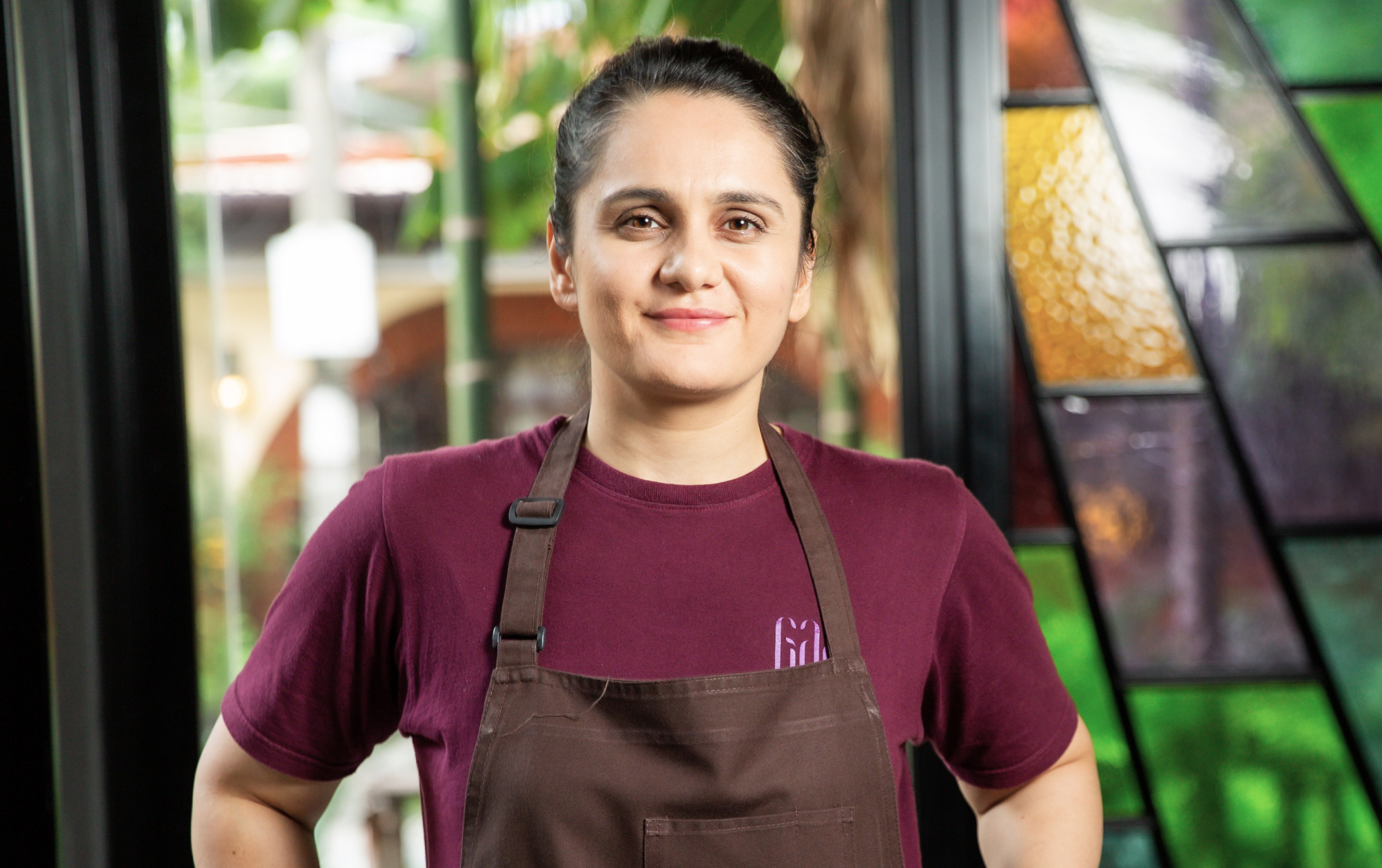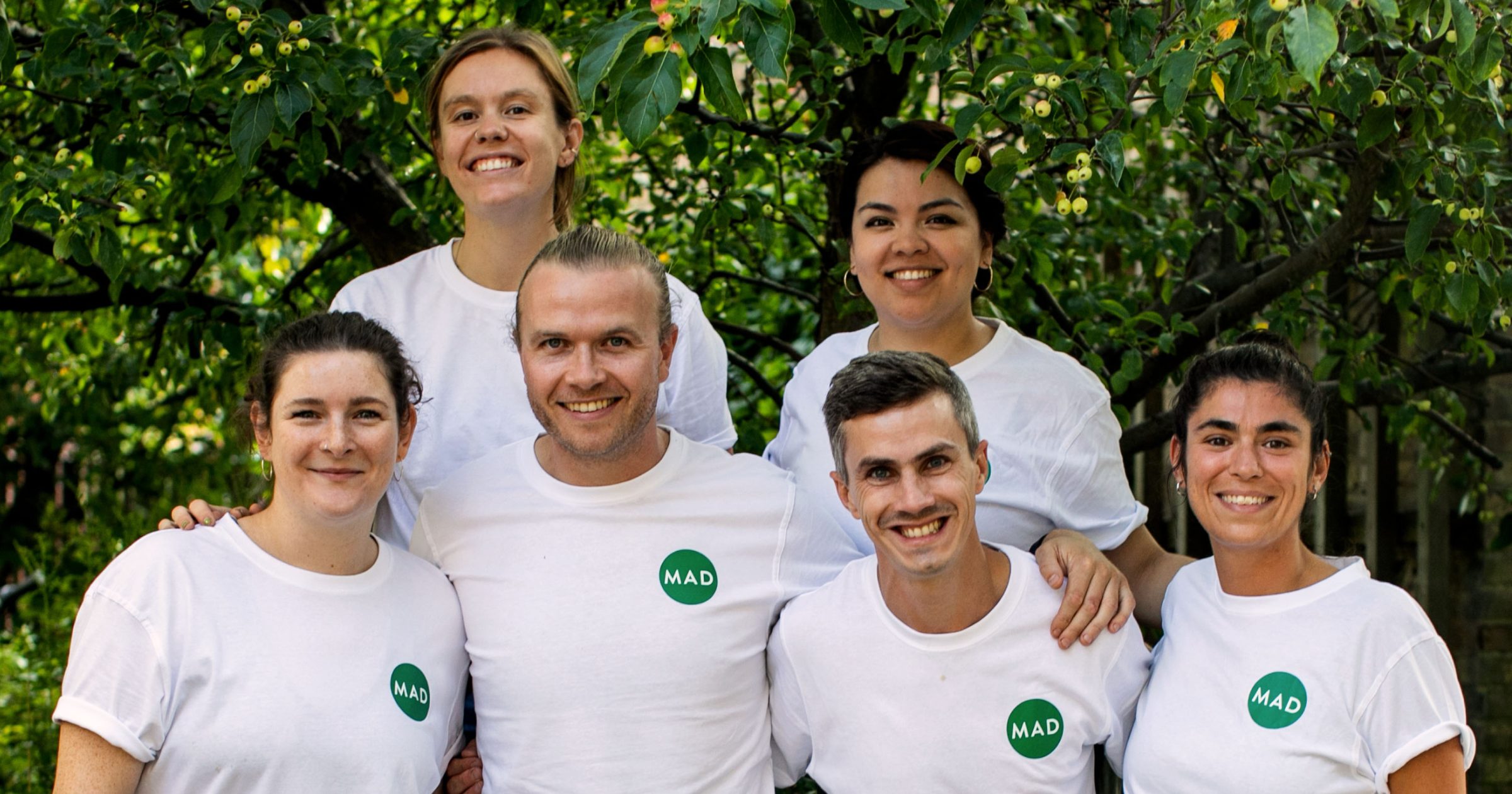5 Questions with Julia Soria
Julia Soria, a chef and MAD alum with an impressive culinary career, has recently taken on a new challenge: launching her own bilingual magazine, Figo. After globetrotting and working alongside the best —and in a few 50 Best— she felt inspired to create a new platform highlighting her unsung heroes of the food industry, from farmers to fermenters. We caught up with Julia to learn more about Figo, fostering meaningful conversations around food suppliers, and where you might just see a wee bit of MAD in Figo’s pages.
First of all, congratulations on the magazine launch! Tell us what inspired Figo and how it has been to go from chef to publisher.
Well, I’m trying to balance both! My days are in the kitchen while Figo is on the side as my passion project. But it was actually my everyday life that inspired Figo—all of the incredible people and projects I’ve encountered throughout my career. All the moments when I wished others could meet the same inspiring people I’ve had the privilege to meet or work with. I think it’s so powerful to share their stories and fuel meaningful conversations around food systems. Also, coming from Argentina, I know there are many great stories that people are missing, either because they can’t speak English or they can’t speak Spanish. That’s why we publish Figo in both languages—we’re trying to break that barrier and foster more connection.
What are some of the memorable stories or experiences we can expect to read about in Figo?
One of the most significant experiences, for me, was during my time in the Maldives. I was trained by a Japanese fermenter, Takanori Onishi, and he was just amazing—so humble and knowledgeable. Not only on the craft of fermentation, making soy, miso, and so on, but also on the health benefits of fermented products— that gut health can directly affect brain activity. I felt incredibly lucky to have trained with him. Another amazing moment was meeting Magui Choque Vilca, known as ‘The Queen of Potatoes’. As a descendant of an indigenous community in Argentina and an agronomic engineer, her work focuses on preserving potato crop diversity. Many varieties are just disappearing because people are only interested in growing the same strands. You can actually read about them both in Issue 1.
The magazine also dives into a lot around responsible hospitality practices, is that what initially drew you to MAD Academy?
I’ve followed MAD for years and always admired the topics and speakers at the Symposiums. It was a dream of mine to attend the Academy, and when I had the opportunity, I jumped at it! I know a lot of people say this, but to feel like you’re part of a global community of chefs working toward positive change is a really important and powerful thing.
Can we expect to see any Academy influence in the pages of Figo?
Academy has definitely influenced our themes and content. A big topic is foraging, and the importance of reconnecting with nature and relearning these ancient food practices we’ve lost. Also, one of the core principles of Figo is to focus on the wellness of people in the industry. I think that’s essentially what makes Figo special: we have a very ‘millennial’ approach and we try to support young leaders. We talk about things that are happening to us, as young leaders, and explore how we can do better. As many of us know, there’s a culture of chefs constantly chasing goals and accolades and romanticizing stress and pressure. We’re looking to do things differently, focusing on wellness and longevity. Even as a pastry chef, I’m always looking for ways to incorporate wellness into pastries and desserts.
You have talked about “wellness pastry” before, is it a thing?
It’s a thing. It might be a challenging concept because, at the end of the day, sugar is still sugar, regardless of the form it takes. But my approach involves reducing portion sizes and sweetness, using natural sweeteners like dates or pears, and incorporating unrefined ingredients. The goal is to create pastries that are more connected to health and well-being without compromising the joy that desserts bring. And, at the end of the day, I think of us can agree that pastries are essential for mental health!




